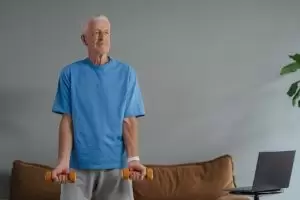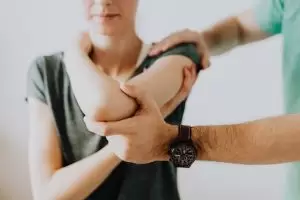The rotator cuff is a group of four small muscles in the shoulder that allow the upper arm to rotate. Shoulder pain and rotator cuff issues are not uncommon, especially among adults over forty and athletes who do repetitive shoulder movements.
Minor rotator cuff issues are typically treated with rest and physical therapy in these instances, you should not have rotator cuff surgery. However, sometimes your doctor may recommend you to have surgery if you have a severely torn rotator cuff.
Rotator Cuff Repair
If your rotator cuff tear is severe enough that it cannot heal through rest and other non-surgical means, your doctor will likely recommend surgery to repair the damage.
Candidates for rotator cuff surgery typically have the following symptoms:
- Pain lasting more than six months
- Significant loss of function in your shoulder
- Continual nighttime pain
- Conservative treatments have failed
To repair a torn rotator cuff, an orthopedic surgeon will reattach the tendon to the upper arm bone using suture anchors. Rotator cuff repair is often performed arthroscopically, where the surgeon makes small incisions, and an arthroscopy (a small tube with a camera) is used to view the damaged tendon.

Rotator Cuff Surgery Recovery Tips
Even though arthroscopic surgery minimizes trauma to the surrounding muscles and tissues, recovery still generally takes between six and eight weeks. For severe tears, recovery can take from six months to a year.
If you go the surgical route for your rotator cuff injury, here are some rotator cuff surgery recovery tips that will help you heal.
1) Wear a Sling
Typically after surgery, your surgeon will give you a sling or shoulder immobilizer. It’s important to wear it for as long as your doctor advises to support and immobilize your affected shoulder. When worn correctly, the device will help recovery and prevent future issues.
2) Sleep Carefully
An important aspect of rotator cuff surgery recovery is making sure you are sleeping in the right position. Sleep the wrong way, and you can be in for a world of hurt. You should keep your arm in a sling while sleeping unless directed otherwise by your doctor. You should also try to sleep on the side where you didn’t have surgery and then, as you recover, can move to lie flat on your back.
3) Prepare Your Showers
Not everyone considers this, but something you should do prior to rotator cuff surgery is swap out your regular showerhead for a detachable one. This will make bathing much easier post-surgery. When showering, you will need to be careful not to get your incision site wet until you get the green light from your doctor. You can use a waterproof bandage or tape a plastic bag to the incision site.
4) Ask for Assistance
Don’t be afraid to ask for help, and don’t hesitate to accept assistance from your family and friends. When you first get home from surgery, you will likely need help with even basic tasks, such as showering, dressing, and cooking. Arrange for rides ahead of time while you are unable to drive.
5) Avoid Certain Movements
While we don’t always think about the specifics of how we move our arms and shoulders day-to-day, post-rotator cuff surgery, you will need to be more mindful. Certain movements can interfere with the healing process. Additionally, doing extra movement outside of your prescribed exercise and physical therapy can aggravate the repaired tendon and create scar tissue.
6) Know the Signs of Complications
With any surgery, you should be aware of any potential complications and symptoms so you can get medical attention if needed. Keep an eye on the incision site to make sure it looks normal. If it looks infected with a yellow discharge, call your doctor.
Other symptoms to watch out for include high fever and sudden pain in your shoulder that doesn’t respond to pain medication.
7) Do the Physical Therapy
The best way to ensure a smooth rotator cuff surgery recovery is to make sure you attend all of your physical therapy appointments. Physical therapy after your rotator cuff surgery will help you regain strength and flexibility in your shoulder post-surgery.

Physical Therapy After Rotator Cuff Surgery
Many patients wonder when to start physical therapy after rotator cuff surgery. Typically, the sooner, the better, and patients can expect physical therapy to begin shortly after surgery.
Immediately after surgery, healing and building strength will be the primary focus. With your arm in a sling, your physical therapist will do most of the movements for you so as not to aggravate or damage your shoulder.
As the weeks continue, your physical therapist will begin to focus on healing the tendons and increasing your movements. As your body heals, your therapy will shift towards strengthening your muscles and tendons. After a few months of recovery, your body should be back to normal, if not better than before surgery.
By following these rotator cuff surgery recovery tips and focusing on your physical therapy, you should hopefully recover in no time.
Rotator Cuff Physical Therapy in Virginia
Are you looking to enroll in physical therapy after a rotator cuff surgery? Or are you looking to avoid surgery altogether? We can help! Our specialists at Mid-County Physical Therapy can help you recover from a variety of shoulder issues.
Call us at (703) 763-3922 or make an appointment online.


